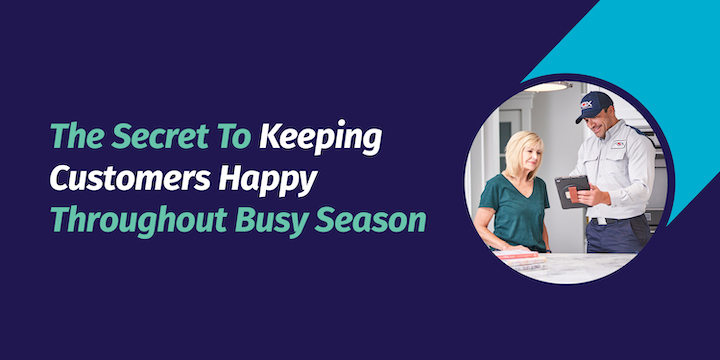5 Tips for Switching Field Service Software

Selecting a new software provider is a big decision that will impact your business for years to come. You certainly don’t want buyer’s remorse. If you’re not prepared, going into the unknown can be daunting and a little scary, to say the least. To help avoid making a very expensive mistake, here are five tips to keep in mind.
1.It’s Not Always About Price
When you’re working with a tight budget, it’s tempting to go with the cheapest software you can find. But just because it’s cheap, doesn’t mean you should buy it. Field service software comes in all shapes and sizes and the cheapest may cause a lot of headaches as you try to make it fit your needs. This can actually cost you more in the long run. Don’t fall victim to what seems to be a good deal up front.
2.Make a List and Check It Twice
Before you start shopping, make a list of the features you absolutely need. Some companies will distract you with fancy options in lieu of your purchasing goal. Think about what you need the software to actually do. If you’re buying it just because it looks slick, you’re probably buying the wrong software.
3.Customer Service
Some software providers will outsource their customer service to cut costs. It may save them money, but they end up suffering because of the lack of quality service. Additionally, customer service shouldn’t be an extra fee you have to pay every time you call. To take it a step further, look for software that not only includes customer service in your subscription price, but also offers a branded customer portal for your clients to interact with you.
4.Implementation
Many companies will over-sell their implementation process by telling you how quick and painless it will be, but implementing a new software is never easy. Also, take the extra time to have your employees properly trained. It’s tempting to skip this step to accelerate the process, but it helps them adopt it more easily.
5.Safe Data Transfer With No Downtime
The idea of transferring your entire business to a new platform may feel overwhelming. Before starting a data migration, a software company should perform an assessment of your database and the environment. Additionally, their implementation team should set up a dry run to ensure there are no surprises.





